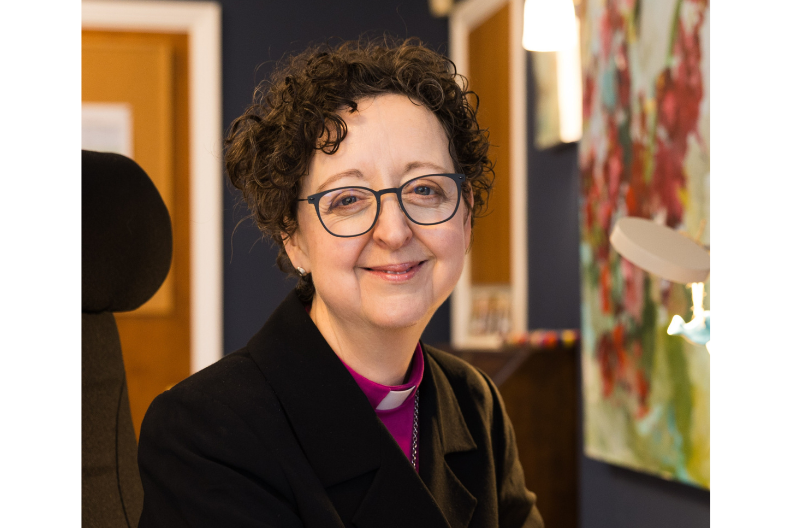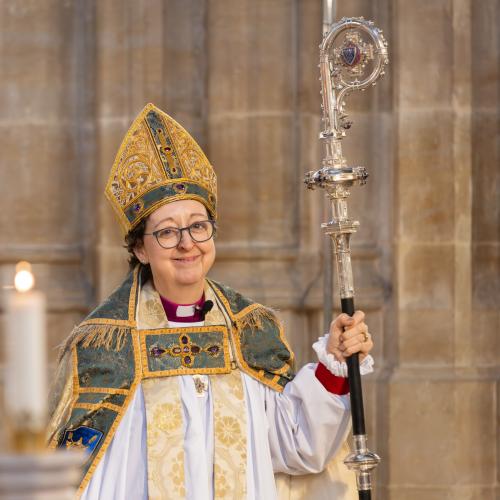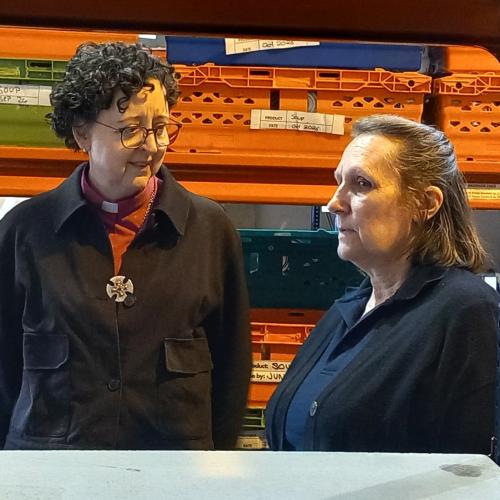
Bishop Joanne
The Rt Revd Dr Joanne Grenfell was enthroned as Bishop of St Edmundsbury and Ipswich on Saturday 24 January 2026.
Previously, she was the Bishop of Stepney, an area bishop in the Diocese of London. Before that, Joanne served as Archdeacon of Portsdown in the Diocese of Portsmouth, Residentiary Canon and Director of Ordinands in the Diocese of Sheffield, and as an inner-city parish priest in Sheffield and Liverpool. .
Joanne was educated at Egglescliffe School, a comprehensive school in County Durham. She studied at Oriel College, Oxford, graduating with a Bachelor of Arts (BA) degree in 1993. She then moved to Canada, where she studied English literature at the University of British Columbia: she graduated with a Master of Arts (MA) degree in 1994. She returned to Oriel to undertake a Doctor of Philosophy (DPhil) degree on the writing of Edmund Spenser. Her doctoral thesis was titled 'Spenser and the culture of place', and her DPhil was awarded in 1997. Joanne was a lecturer in English Literature at Oriel College, Oxford until 1998. She trained for ordained ministry in the Church of England at Westcott House, Cambridge, from 1998 until 2000.
She is the Church of England’s national lead bishop for safeguarding and supports the vital work to reform the Church’s safeguarding structures, to bring greater independence around scrutiny, audit and complaints, as well as how operational safeguarding is delivered.
Bishop Joanne, 53 is married with three children. She is the first woman to lead the St Edmundsbury and Ipswich Diocese.
| The Rt Revd Dr Joanne Grenfell |
Bishop of St Edmundsbury and Ipswich The Bishops House, 4 Park Road, Ipswich, IP1 3ST |
01473 252829 |
|
Vacant |
Suffragan Bishop of Dunwich |
|
|
Bishops' Chaplains |
01473 252829 |
|
|
Bishops' Executive Assistant |
01473 252829 |
|
| Diane Matthews | Archdeacons' Executive Assistant | 01473 252829 |
| Tully Chant | Office and Finance Manager | 01473 252829 |
Previous Press Articles
2025: August | July | June | May | April | February | January
To find out more
|
|
|
 Please follow the Bishop on
Please follow the Bishop on  Please subscribe to the Bishop's
Please subscribe to the Bishop's 

